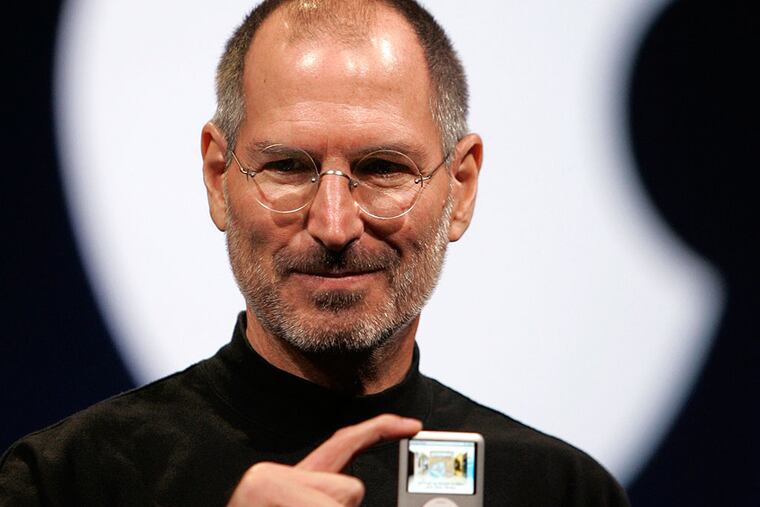Digital giants owe workers over pay schemes
The week before Labor Day, a federal judge in Silicon Valley signed off on a record $415 million class-action settlement against Apple, Google, Intel, Disney, and six other digital-economy giants accused of collaborating to suppress the pay of 65,000 software engineers, designers, app developers, and other tech pros who worked there in the late 2000s.

The week before Labor Day, a federal judge in Silicon Valley signed off on a record $415 million class-action settlement against Apple, Google, Intel, Disney, and six other digital-economy giants accused of collaborating to suppress the pay of 65,000 software engineers, designers, app developers, and other tech pros who worked there in the late 2000s.
At the center of the scheme was Apple's late founder Steve Jobs, depicted by workers and witnesses as coordinating the multi-company noncompetition agreement to stop luring one another's prized tech minds to better-paid positions.
Google CEO Eric Schmidt agreed to fire recruiters when Jobs complained they were offering to pay his people more, according to testimony and emails that U.S. District Judge Lucy Koh found credible enough to take the case to trial.
Not all of the CEOs rolled over for Apple. Palm boss Ed Colligan told Jobs that his pay-suppression scheme, and Apple's threat to challenge his much smaller company's patents if he didn't play along, were "wrong" and "illegal." In a free market, Colligan suggested, "it's inevitable that we will bump into each other" hunting talent.
The Justice Department investigated, ordered the companies to stop - and followed the usual Obama-era practice of not hitting powerful domestic interests too hard. No criminal charges. No compensation. So workers sued.
"You had these high-tech companies fighting with each other in the free market to create the best products with the lowest prices - yet, when it comes to dealing with their own employees, they'd rather not compete, because that's expensive," lawyer Eric L. Cramer, a managing shareholder at Philadelphia-based Berger & Montague P.C. who represented some of the workers, told me.
It wasn't just stars Big Tech tried to hard-wire to their desks. "We were able to show a vast group of employees were affected by these agreements," Cramer said.
Curbing this cozy wage suppression hasn't stalled the i-Profit machine. Apple earned $35 billion in the years covered by the suit, 2005-10. It expects to earn more than $50 billion this year alone.
Americans have wondered why Apple, the most valuable U.S. company, relies so much on cheap foreign factories and labor. Apple has said from time to time that it would try harder to source locally.
In 2013, then-Pennsylvania Gov. Tom Corbett announced that one of Apple's lead suppliers - Hon Hai Precision Industry Co., also known as Foxconn - "plans to invest $30 million" over the next two years "to establish a high-end technology management facility," and would choose a site somewhere in the state at a distance from its small former AMP Inc. testing facility near Harrisburg.
Where's the $30 million factory? Nowhere, apparently: Two years later, Foxconn has not followed up with the state programs tapped to help site and finance a facility, state spokeswoman Lyndsey Kensinger and other state officials told me.
Foxconn officials in Taiwan and at its U.S. headquarters did not reply to inquiries. (Foxconn also promised $10 million for research at Carnegie Mellon University. I couldn't get officials there to say they'd gotten the money. Foxconn is, however, a cosponsor for a student robotics team there.)
None of this surprises Mike Buetow, who has written about other vaporous Foxconn promises at CircuitsAssembly.com.
"Foxconn has been the subject of several related stories touting astronomical sums of future investment, none of which have come to pass," Buetow told me. He cited a string of $100 million-to-$1 billion investments the company pledged in prior years in Brazil, Vietnam, and Indonesia, and plants the company said it would build in Colorado, Louisiana, and four other states. Still waiting.
In July, Foxconn promised to create a million jobs in India. "I'd put the odds at a million to one," Buetow said.
215-854-5194@PhillyJoeD